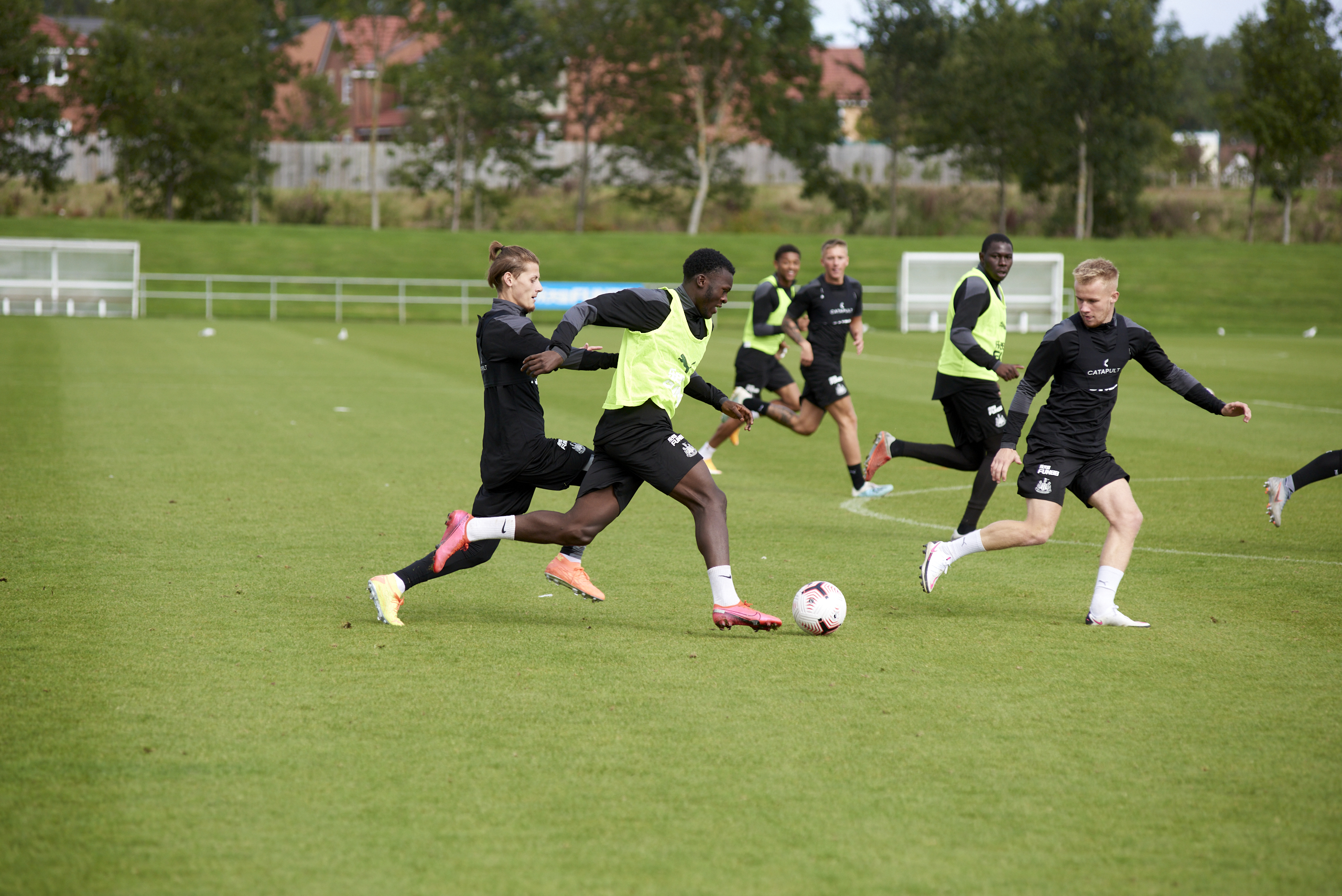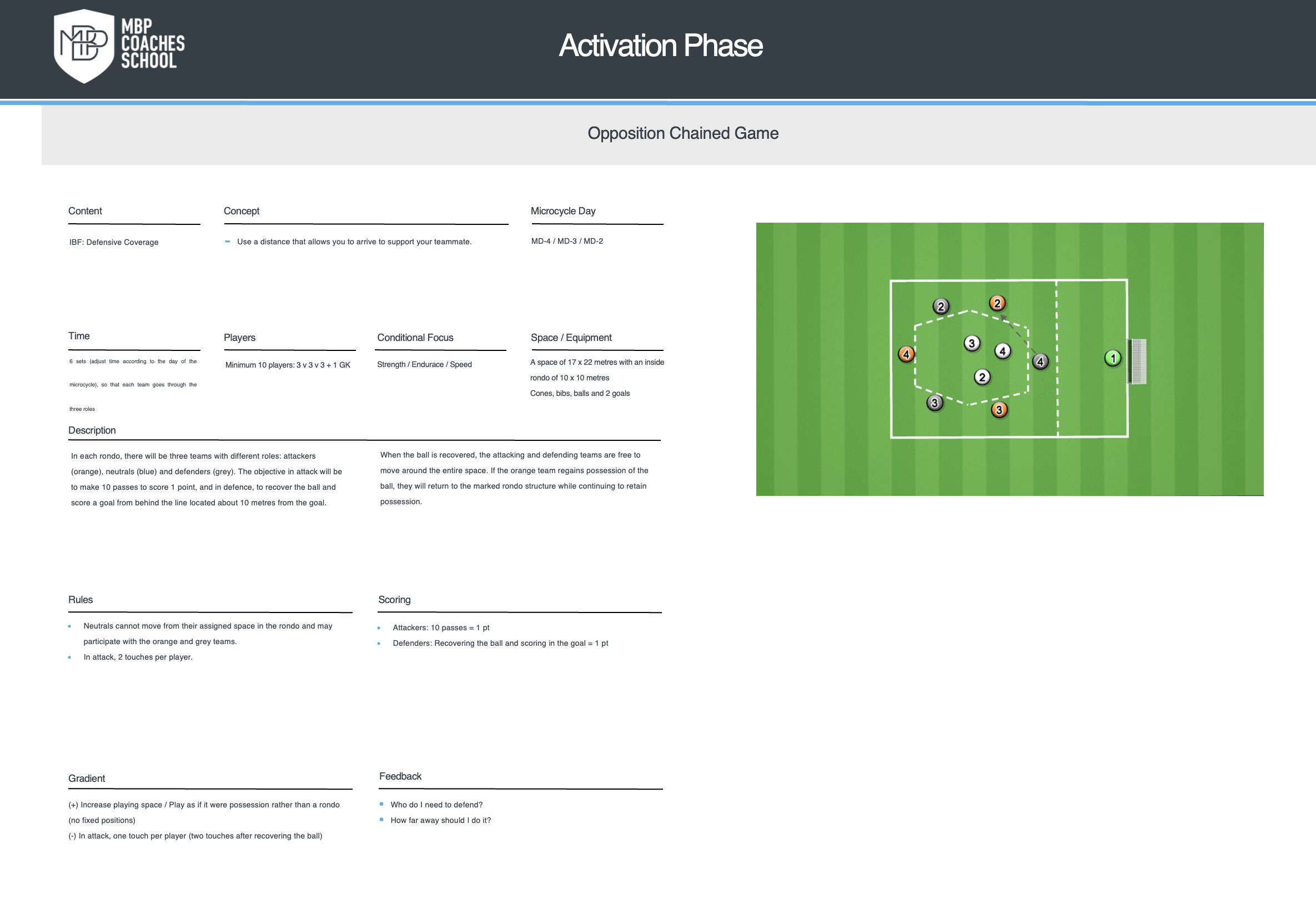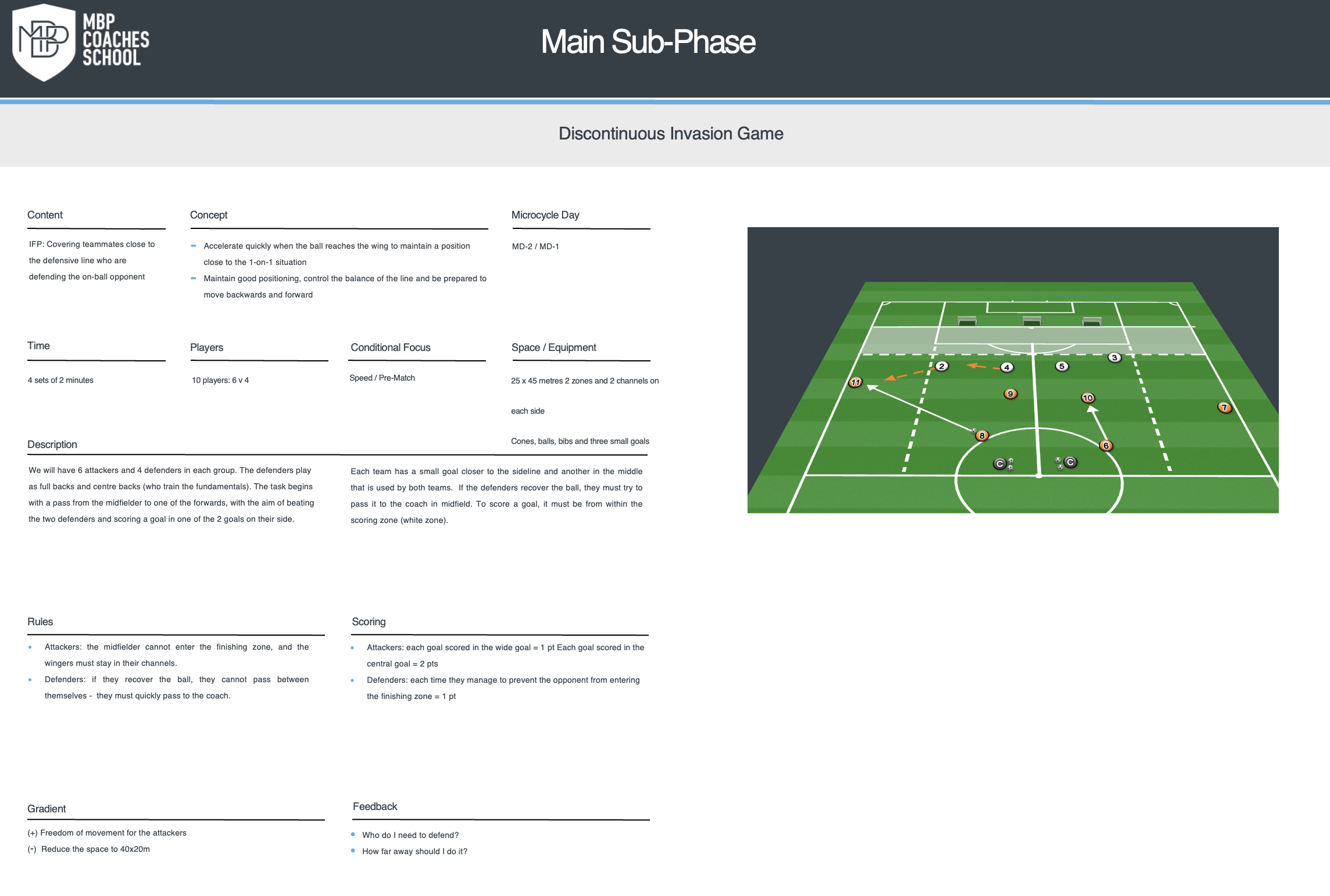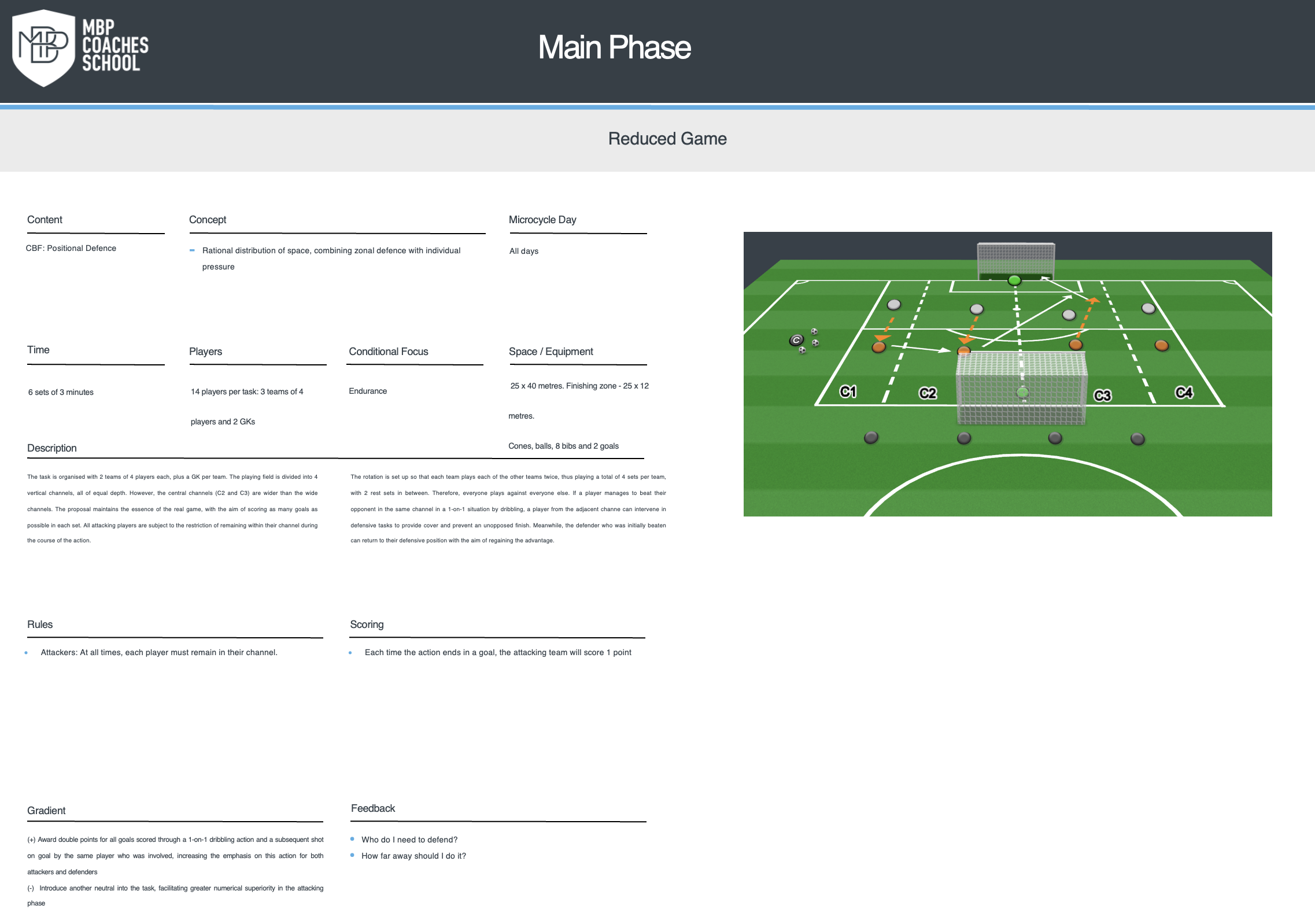Defensive coverage is the action that allows a defender to support a teammate who is directly intervening against the on-ball opponent. This reduces open spaces, hinders the opponent’s progress and maintains the team’s defensive balance. Below are three examples of tasks that can help you improve this ability with your players.
Task 1: Opposition Chained Game
The first task we present is a opposition chained game, which can be used at any stage, from development to high-performance, and is ideal for use in the activation phase of the session. In this case, it would be used in the day of the microcycle when individual or defensive behaviours are to be trained. It will also be very useful for introducing the concepts due to the low specificity of the task.
Image 1. Opposition Chained Game to Train Defensice Coverage. Source: MBP Coaches’ School
Task 2: Discontinuous Invasion Game
The second task is a discontinuous invasion game applicable in the technification or high-performance period, although its format is simple.
Image 2. Discontinuous Invasion Game to Train Defensive Coverage. Source: MBP Coaches’ School
The rules seek to limit the options available to attackers, preventing the midfield from entering the final third and forcing the wingers to stay in their channels. This reduces attacking mobility and makes it easier to read the opponent’s runs, allowing the back four to anticipate, organise and coordinate their coverage more effectively.
These conditions enable the defensive line to work without becoming disorganised in the face of predictable attacks, prioritising synchronisation, occupation of spaces and mutual support in real coverage situations.
Task 3: Reduced Game
This last task consists of a real conditioned game for the initiation period and, like the two previous tasks, it is also applicable in the technification and high-performance periods (in both cases we consider it a reduced game due to the low number of players participating in relation to its competitive format).
Image 3. GK+4v4+GK Reduced Game to Train Defensive Coverage. Source: MBP Coaches’ School
Reduced games are played in small or reduced spaces. It is important to note that the space will be unspecific but directed, allowing real situations to be worked on with a certain degree of control. The content with the greatest transferability in this type of exercise is the collective basic fundamentals and the universal fundamentals. In this case, we focus on working on the collective basic fundamental of positional defence.
In addition, the use of rules allows defenders to find situations of numerical superiority in the different channels, thus facilitating the emergence and effectiveness of positional defence.
What did you think of the tasks? Do you think they could be useful for training with your team? Leave us your comments and any possible variations you think could improve them.
Do you want to improve the training of your players?
In the Online Expert in Youth Football course, you will learn to identify the main characteristics of youth players and classify them according to their level of game understanding. This will enable you to select the most appropriate training content for their needs and, consequently, you will learn to design training sessions and tasks that respect and promote their learning processes in order to help develop better players over time.










